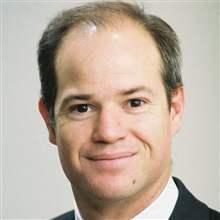This paper was presented at a workshop convened by the University of Waterloo’s Center for International Governance Innovation and the University of Victoria’s Center for Global Studies. The workshop took place on September 20, 2004, at the Council on Foreign Relations in New York on behalf of Canadian Prime Minister Paul Martin. The purpose was to stimulate discussion over how a leaders summit of the group of 20 nations composed of the major developed and developing countries, including the United States, the European Union, Japan, Russia, China and India, could further international efforts to combat global climate change. The paper is structured as a background document for a hypothetical communiqué that world leaders could accept. The ideas in the paper represent the authors assessment of what leaders of the twenty great powers could accept politically rather than the ideal solutions for global warming.
The L20 should address climate change primarily through non-emission based approaches
for several reasons. First, alternatives to emission targets could compliment national emission
targets taken under the Kyoto Protocol and elsewhere. Even the strongest advocates of emission
targets accept that other policies are needed to ensure maximum progress by all parties. Second,
non-emission based commitments could become a useful alternative to or substitute for emission
targets beyond Kyoto, should those efforts fail to gain support. So far only nations accounting for
less than a quarter of global emissions have accepted legally binding national emission targets.
While the political will for emission targets should grow over time, resistance in the United
States, Brazil, China, India and other key L20 nations will not evaporate quickly and this
provides a strong reason to consider alternative policies.
Perhaps most importantly, the L20’s comparative advantage on climate change is as an
innovator. The L20 heads of state could link climate change to a larger set of issues, and in this
way reframe the international problem in ways that key nations view as far more relevant to their
national interests than the narrow question of emission levels. In contrast to heads of state,
specialized climate change bodies lack authority or competence over many important policies
that influence global warming, such as trade, investment, foreign aid and energy policy. Work on emission targets, moreover, will continue in climate forums even absent intervention by the L20.
The best use of the L20 would be for it to take up new approaches beyond emission targets.
The L20 could examine any number of non-emission based forms of international
agreement. Three ideas that might be amenable to meaningful quantitative commitments or
targets are presented below in some detail—renewable energy standards, biofuel policies, and
clean energy trade liberalization. Also discussed briefly at the conclusion of this paper as
possible areas for L20 cooperation is climate science and clean energy research.
The Brookings Institution is committed to quality, independence, and impact.
We are supported by a diverse array of funders. In line with our values and policies, each Brookings publication represents the sole views of its author(s).


